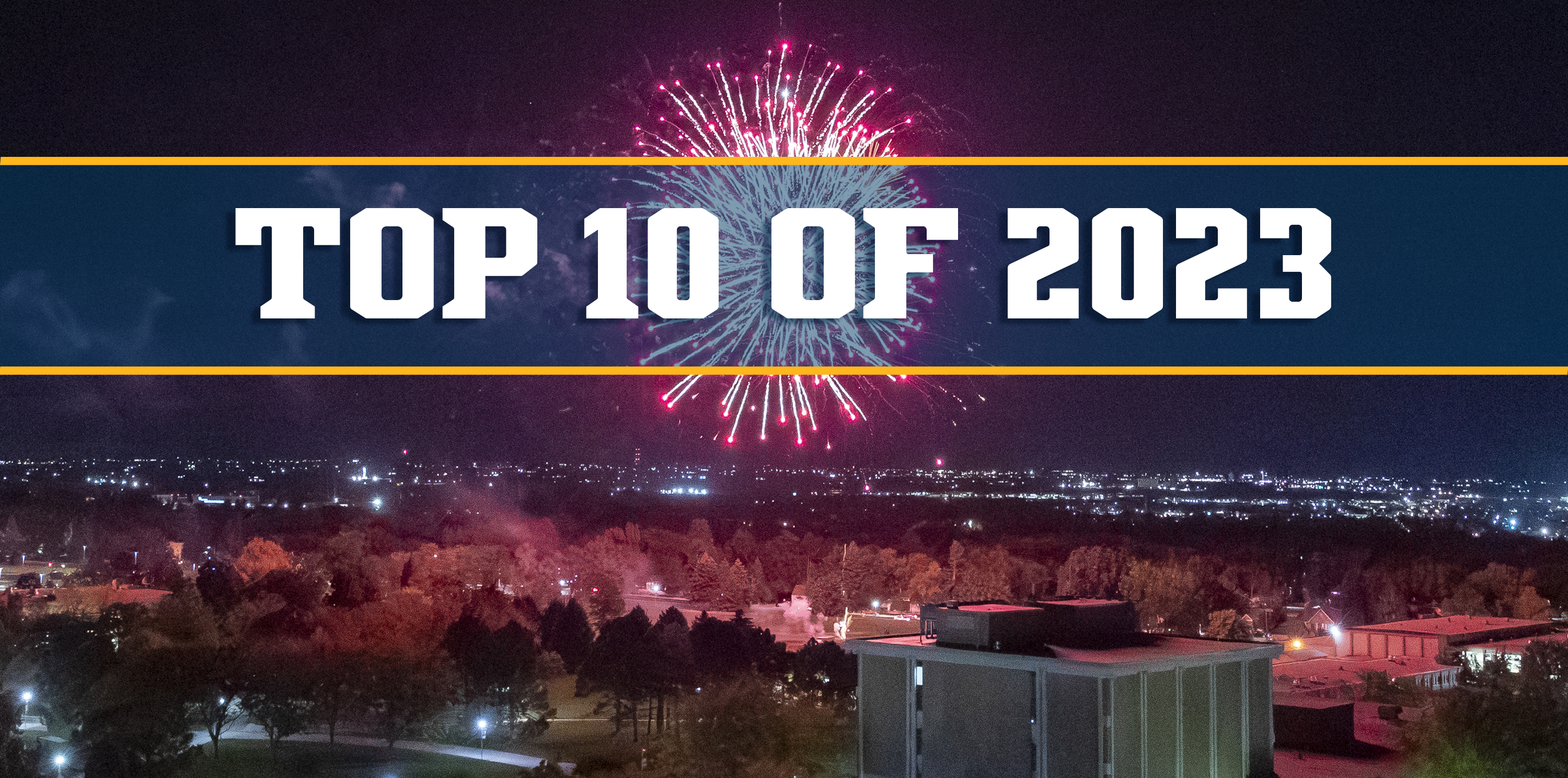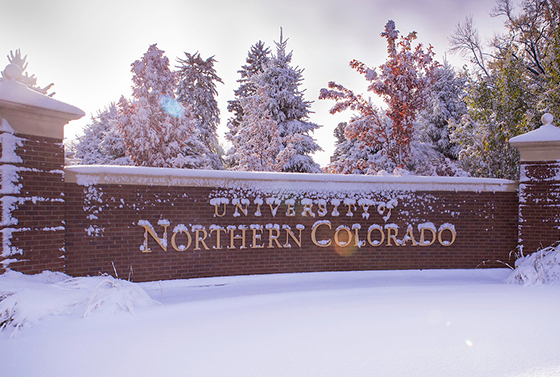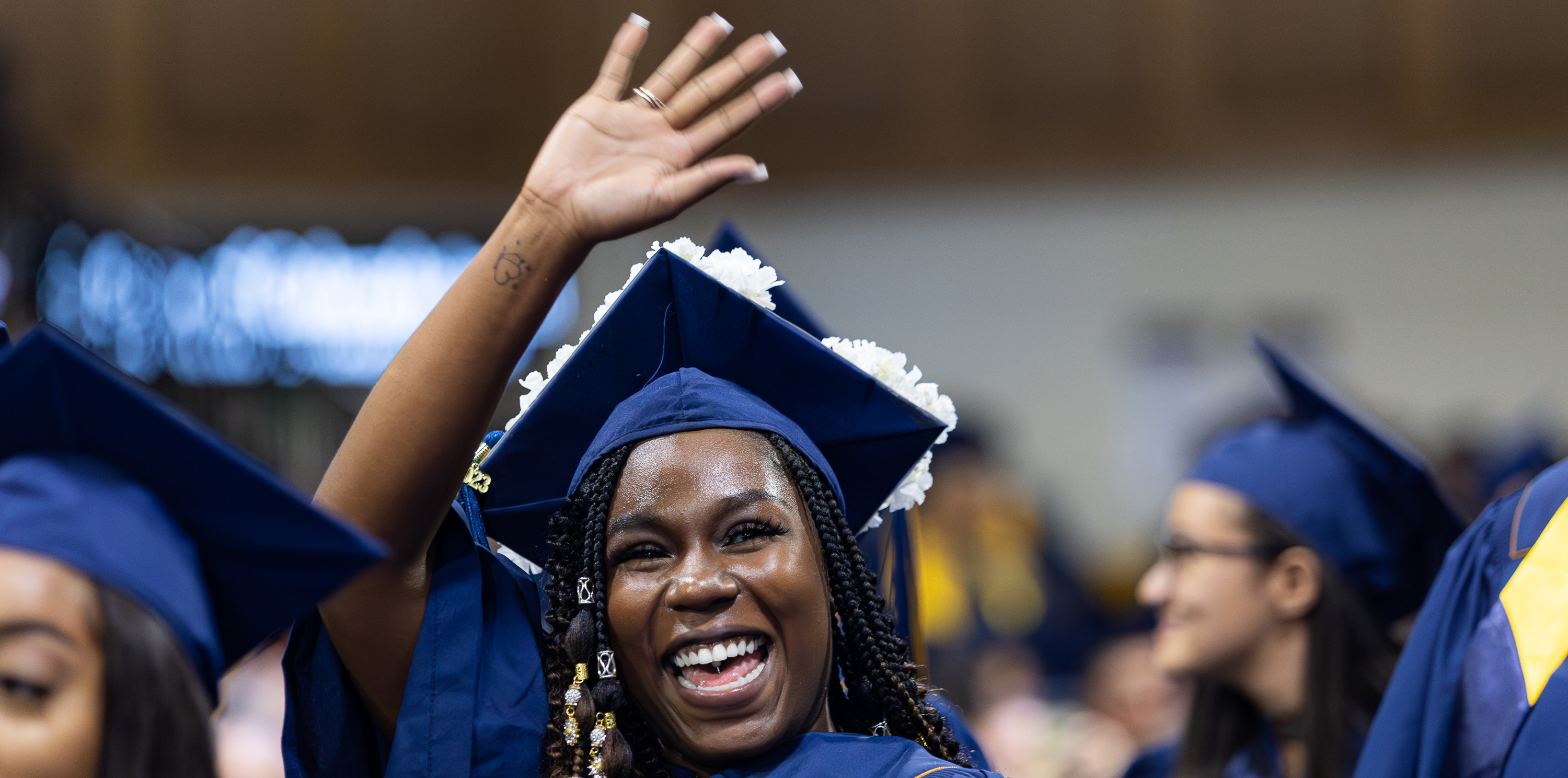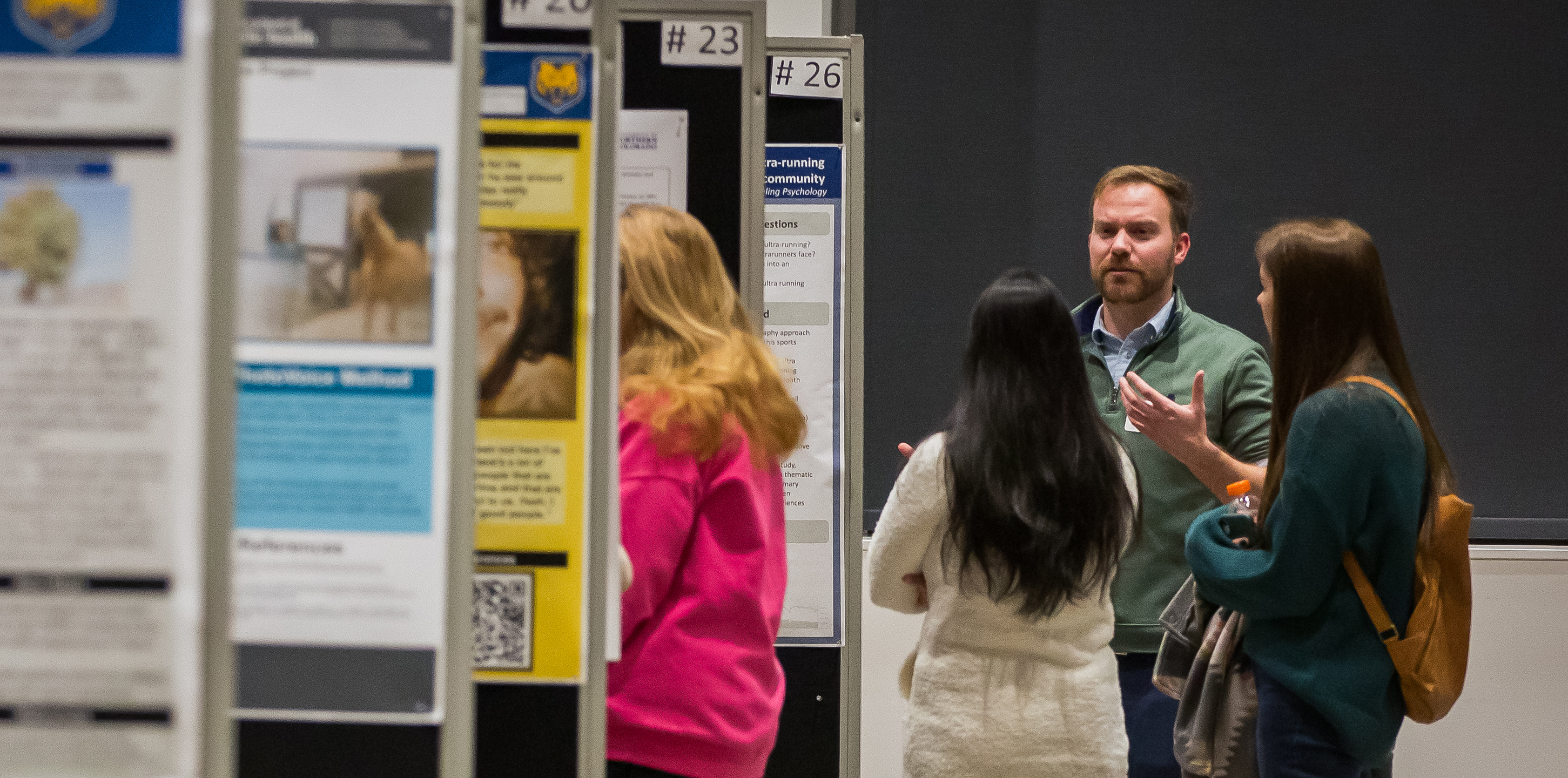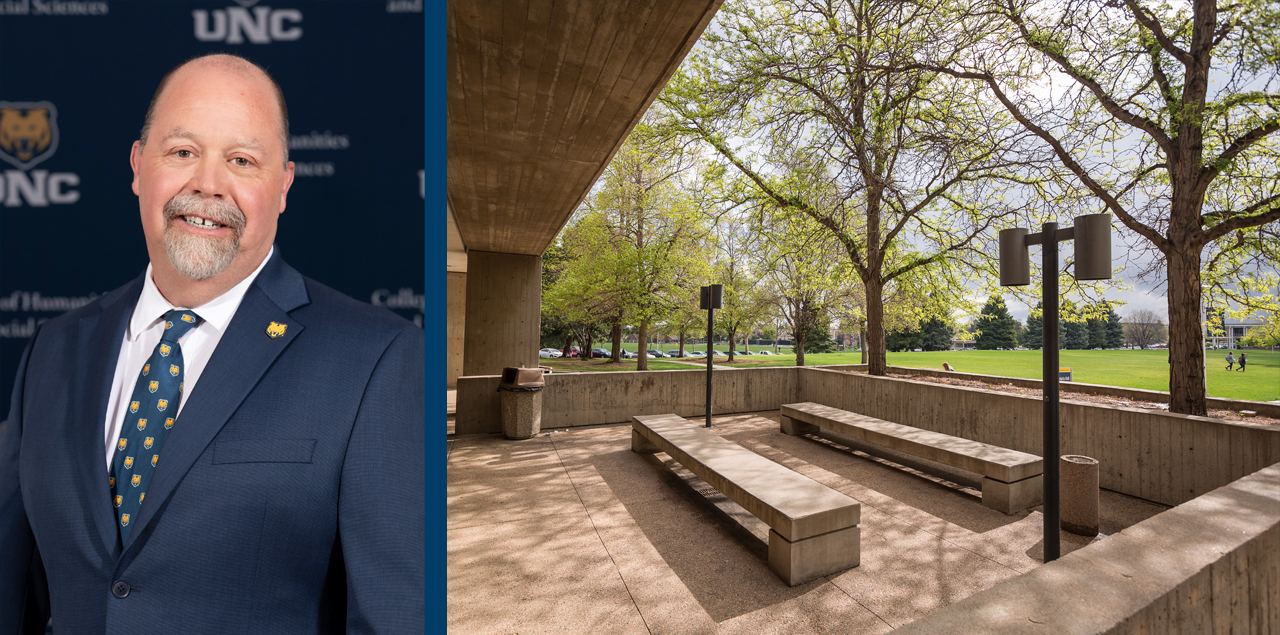
A native Oklahoman, Jim Doerner, Ph.D., is practically a Coloradan now and is definitely a UNC Bear through and through. Joining the university in 1994 as an assistant professor of geography, Doerner, a full professor of Geography, GIS, and Sustainability, served as department chair for seven years. In July 2022, he was named interim dean and became permanent dean in April 2023 for the College of Humanities and Social Sciences (HSS).
Doerner never intended to pursue a career teaching in academia, let alone become a dean. While earning his doctorate in geography at the University of Denver, he had a research assistantship that he enjoyed a great deal. When the department needed him to fill in as a graduate teaching assistant one semester, he was apprehensive since he “is not one to gravitate toward the limelight.” To his surprise, he loved being in the classroom.
“I started to see how I could help people really see a problem, and it was very rewarding,” said the geography professor after 29 years in the classroom. “There’s professional renewal every semester — new students, finding a new way to teach that allows them to learn. There is an art to teaching, and the reward is when students ‘get it’.”
After that serendipitous entry into higher education and receiving numerous awards and accolades for teaching excellence, Doerner had a similar experience before becoming a dean. It was not something he intended to do, given his passion for teaching, students and his research.
“I thought I could fill in and provide a bridge for the next person to take over as dean,” explained Doerner, who has a warm, unassuming way with people.
But he became interested in the idea of taking his skill set — built over nearly three decades at UNC — and applying it in a different way to things that he cares deeply about: the success of students, the college and the university.
“I wanted to do something that brings me satisfaction, but that also makes a difference,” said Doerner, who has maintained his research and hopes to find time to teach a class in the future.
In the past two years, the university has attracted new deans to many of its other colleges, so Doerner is a sort of UNC elder statesman among the five undergraduate college deans.
“I think I bring a history and a deep level of understanding about the institution. I can give voice to why we may have done things a certain way at UNC,” said Doerner, known for being straightforward, transparent and genuine, willing to hear people out. “Not that we will keep doing things the same way. The other deans bring fresh perspectives and different experiences.”
As the first new dean at HSS in eight years, Doerner explains his vision for the college. It’s imbued with a need to address the current, growing speculation about the role and need for the humanities in the 21st century.
“Historically, the humanities and social sciences were about the role of humans, how humans interact in the world,” explained Doerner. “Social scientists bring in problem-solving abilities, asking the right questions, analyzing data for some of the big societal issues we are facing and that they can address. Then you have people trained in the humanities, and what they bring to the table also addresses societal needs. I think that is the basis for going forward.”
From college of discovery to one of destination
A tireless champion of students, Doerner is committed to helping them find their passion and place. When asked about his goals for the college, he says HSS is currently a “college of discovery” for students who arrive at UNC and then explore the incredible work and experiences in HSS, and they want to be part of that. In the future, he would like HSS become a “college of destination.”
To illustrate, Doerner would like to spur interest in strong HSS programs such as philosophy, sociology, economics or anthropology and “make them brighter” to attract students who are looking for majors that match their interests but also where they can make a difference.
Put another way, students may know UNC as a good university, recognized for excellence in performing and visual arts, teacher education or nursing, but they may be unaware of majors and careers in the humanities and social sciences. Doerner explains that students are not exposed to fields like Asian studies, geography, international affairs, journalism and other humanities disciplines in middle or high school. Because these career paths are often unknown and unexplored to high school students, this poses a very real challenge for the humanities.
Oftentimes, students don’t actually discover these kinds of disciplines until they take their Liberal Arts Curriculum (LAC). Then they change their major to one that is a better fit.
HSS houses many of UNC’s LAC courses, teaching students important perspectives so everyone understands what the humanities and social sciences bring to address societal problems. All UNC students are required to complete 31 credit hours from the LAC, regardless of major.
High-Impact Learning
“Students might seek out UNC for a high-quality education and experiences they are interested in. [They may not] experience these at a program at a larger school. [Those programs] won’t have the same impact [as at UNC],” said Doerner. “At HSS, we have many programs that are undergraduate-only, and that’s a different kind of intensity for students. They can get so much more out of it.”
While many high school students may be attracted to larger universities or programs, Doerner explains, they may not realize they will have less one-on-one time and access to faculty. UNC boasts a 14-1 student-faculty ratio, meaning a better learning environment with smaller classes, more social engagement, increased individualized attention and a deeper connection.
Over time, Doerner has seen a shift in what students expect from their college experience.
“Years ago, they didn’t question the value of a college degree as much because it was viewed as the path to success,” said Doerner. “Today, students are seeking a more meaningful experience during their college years and need to understand why they are doing what they are doing, why they need to take a certain class.
“They are very protective of their time,” he adds. UNC students often work one, two or three jobs, have their own family, or have family responsibilities.
Skills for Life
Doerner believes HSS provides tremendous value-added experience for students. They can participate in outside-the-classroom experiences, undergraduate research experiences working alongside faculty and alternative spring break experiences or internships early in students’ college careers. This helps students find their passion and “try on” different careers.
In fact, a 2021 report from the U.S. Bureau of Labor Statistics found that people held, on average, more than 12 jobs between the ages of 18 and 54, with nearly half of those job changes occurring before the age 25.
“We want to be better at showing students how humanities and social science degrees can prepare them for satisfying careers, give them the skills they need to be adaptable and pivot to future jobs and to make a difference in the world,” said Doerner.
A broad educational experience exposes students of all majors to a range of academic subjects from scientific to humanitarian studies. HSS programs instill students with the three fundamental competencies of an education in the humanities and social sciences: critical thinking, processing and analyzing data and communication to develop better, more sustainable solutions to future challenges.
Micro-credentials, or bite-sized learning, in the humanities for a stronger, resilient workforce
Doerner sees many opportunities to support workforce development by creating new certificates for both undergraduate and graduate students. An initiative funded by the Provost’s Reinvestment Funds, developing micro or stackable credentials, can help students get a job after graduation by allowing them to specialize in a particular area – often with just a few courses. Or they could help alumni or working professionals upskill to gain a competitive advantage needed for a promotion or new job.
Earning certificates can even increase their employability and advancement later in their professional life, according to a 2022 study in the journal Higher Education Evaluation and Development.
Finding their place and belonging
“When students find the right place, they can excel,” said Doerner. “And our faculty feel more excited when students succeed.”
As a student who did not have a clear path to his study of geography, Doerner understands that the path for a humanities student is not linear. It takes a while to match their passion to a higher purpose and ultimately to a major and career.
For instance, he says a student’s interest in global warming can lead them to several disciplines—chemistry, physics, economics, anthropology, communications, geography and more.
“They all study the same problems, but they approach it from different perspectives about how a solution will affect people. Our job is to teach them to ask the right questions,” said Doerner, who has found his passion and place at UNC.
“For me, UNC is the right fit. The students are fun to work with. People are here because they want to be here. And I am lucky to be able to do what I do in Colorado with Rocky Mountain National Park right in our backyard. I like being here.” And it shows.
Read more about the power of the humanities at UNC.
— written by Debbie Farris
More Stories
-
The Top Stories of 2023
Este artículo no está en español.
-
Key Accomplishments Aligned to Strategic Plan Showcased in December Board Meeting
Este artículo no está en español.
-
Increasing Diversity and Growth in Graduates from Business College Headline Fall Class of 2023
Este artículo no está en español.
-
Student Research Takes the Stage at Annual Symposium and Competition
Este artículo no está en español.

